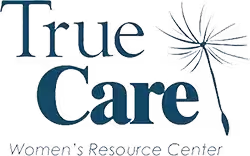While sitting at a local diner, you overhear a conversation directly behind you. “Did you know Ja— (too garbled to hear the name) has the clap? His poor girlfriend. I knew he was bad news from the get go. Oh how terrible.” You can’t quite hear the name but you definitely hear that word “Clap.” The people are speaking in hushed voices and a tone suggesting they are imparting some delicious morsel of scandalous information. “What is the clap?” you wonder. You have heard the term before and think it may be some kind of STD, but you aren’t certain.
The Clap
The Clap is a slang name for Gonorrhea. It is a common bacterial infection transmitted via sexual contact from person to person. A woman with gonorrhea can transmit the disease to her baby during childbirth. According the Center for Disease Control, also known as the CDC, some men and most women with gonorrhea have no symptoms. For women, if they do have symptoms, they may include pain or burning with urination, increased vaginal discharge, and/or bleeding in between periods. Because the Clap is a bacterial infection, it is treatable with antibiotics. The number of gonorrhea cases we have seen at True Care have increased dramatically during the last year.
Why Call it the Clap?
No one is certain where the nickname came from, however there are a few theories. The first theory goes ways back to the 1500s in France, when a brothel was called a “clappier.” The name “Clap” would then make sense because a brothel would be a likely place to acquire the infection. The other two theories are a little beyond the sensitivities of this blog, and, well… you can look them up and read about them here if you are interested.
Getting Tested and Treated
Why get tested? Most of our patients really don’t think they have an STD. Those who come up positive are often shocked. Left undiagnosed and untreated, gonorrhea can progress to a more serious infections. Women can develop something called pelvic inflammatory disease (PID), which is an infection that has traveled higher up in her reproductive tract, affecting the uterus and fallopian tubes. Scarring often occurs causing damage to the area and affecting the woman’s future fertility.
Be sure to get tested if you have been sexually active, even if you don’t have any symptoms. Gonorrhea numbers are on the rise and since many people have no symptoms, your partner may not know he or she is infected. Condoms can reduce risk but cannot prevent an STD.
Where can you get tested? Most doctors and many clinics can provide STD testing for you. Here in Casper you can go to your primary doctor, gynecologist or the public health department. When money is an issue, there are vouchers for low cost to free STD testing available at Knowwyo.org. True Care tests for both chlamydia and gonorrhea free of charge during a woman’s pregnancy test appointment. Because there are many more STDs than we test for, we also encourage our patients to seek further testing with their women’s health provider.
